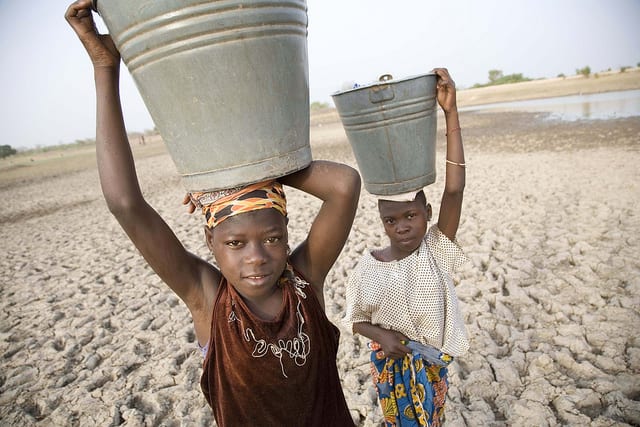By Gordon Younkin
You may have seen in the news a little over a year ago that the WHO declared Nigeria free of guinea-worm disease. While this may be considered old news, it is still worth examining the campaign that successfully stopped its transmission.
Guinea-worm disease, also known as dracunculiasis, infects people via contaminated waterways, especially in slow-moving streams or stagnant pools. After entering the human body, it stays matures in its host without causing any symptoms for about a year before painfully emerging from the skin of the infected individual. It then releases thousands of larvae, and its life-cycle repeats. There is no vaccine or treatment for the disease—it is most effectively stopped through preventative measures such as water purification and behavioral change.

In 1988, the Nigeria Guinea Worm Eradication Programme was launched in response to a World Health Assembly resolution calling for the global eradication of the disease. At the time, there were around 650,000 reported cases of guinea-worm disease in Nigeria alone. Over the course of the 25-year campaign, thousands of volunteers traveled door-to-door in communities across the county to search for and contain the disease.
What I think is most notable is the use of polio vaccinators to help in the surveillance efforts. The campaign was able to use existing health workers already familiar with the communities and culture to more quickly and efficiently eradicate guinea-worm disease. It is this kind of cooperation between different public health efforts that is crucial to the continuing improvement of health worldwide. Dr. Margaret Chan, Director-General of the World Health Organization (WHO), commended the collaborative guinea-worm disease eradication effort: “This is the kind of joined-up effort that makes the most effective use of our human and financial resources, and has a dramatic and measurable impact.”
The last case of guinea-worm disease in Nigeria was reported in 2008, and the country was declared Guinea Worm free in late 2013. While the polio vaccination campaign is still in progress due to a number of cultural and infrastructural barriers, Nigerian President Goodluck Jonathan is committed to stopping the transmission of wild poliovirus by the end of 2015.
If you are interested in more information about guinea-worm disease eradication efforts in Nigeria, some useful references are:
http://www.who.int/features/2014/nigeria-stops-guinea-worm/en/
http://www.punchng.com/news/who-certifies-nigeria-guinea-worm-free/

